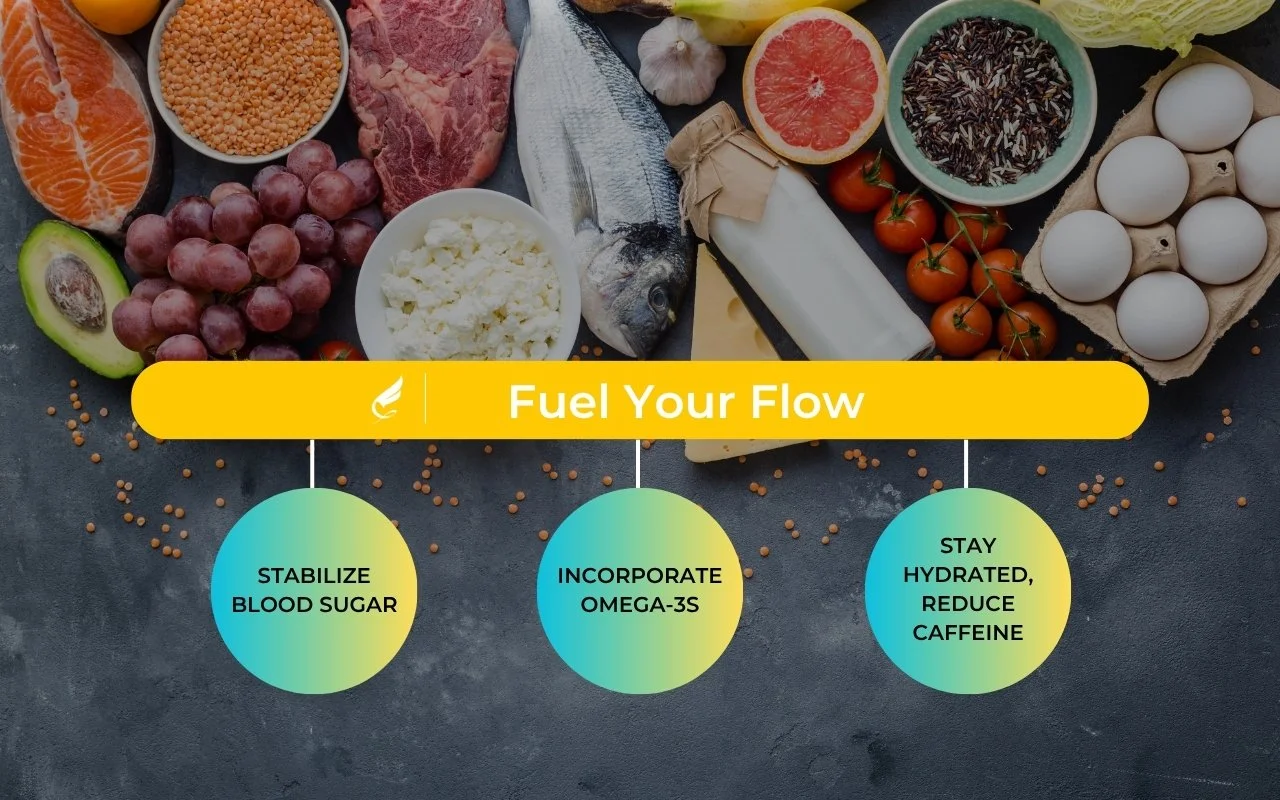The Dubai Executive's Guide to Stress Management and Cortisol Control for Fat Loss
In the high-stakes professional landscape of Dubai, chronic stress has become a silent epidemic. For many executives, long hours, immense pressure, and a demanding lifestyle are the norm. But the cost of this relentless pace is often more than just a decline in mental well-being; it's a physical one, showing up as stubborn, hard-to-lose abdominal fat.
You may be doing everything "right"—eating a healthy diet, exercising, and still seeing no change around your midsection. This isn't a failure of willpower. It's often a direct result of a powerful stress hormone: cortisol.
Understanding and managing your cortisol levels is the key to breaking this frustrating cycle. This guide will explain the science behind the cortisol belly and provide you with actionable stress management techniques to regain control of your body.
The Science of Stress: Cortisol's Role in Fat Storage
Your body has a sophisticated system for dealing with perceived threats, known as the "fight or flight" response. When you encounter acute stress (like a near-miss in traffic), your adrenal glands release cortisol. This is a good thing—it gives you a quick burst of energy and focus.
The problem arises with chronic stress, where the perceived threat never truly goes away. Your cortisol levels remain elevated, leading to a cascade of negative effects that directly encourage fat storage, particularly around the abdomen.
Increased Blood Sugar: Cortisol floods your bloodstream with glucose for quick energy. If this energy isn't used, your body releases insulin to store it, often as fat. This can lead to dangerous blood sugar spikes and insulin resistance over time.
Intense Cravings: Elevated cortisol levels are directly linked to cravings for high-fat, sugary, and salty foods. This is a primitive survival mechanism that is counterproductive in modern life.
Direct Fat Storage: The fat cells in your abdominal area have more cortisol receptors than fat cells elsewhere in your body. This means that when cortisol is high, it has a specific, targeted signal to store fat right where you want it least.
The Fortius Protocol: Actionable Strategies to Lower Cortisol
The good news is that you can take back control. A strategic approach to lifestyle can significantly lower cortisol, improve your body's ability to handle stress, and unlock fat loss.
1. Master Your Nutrition for Hormonal Balance Your diet is your first line of defense.
Stabilize Blood Sugar: Avoid large, infrequent meals. Eat balanced meals containing protein, healthy fats, and complex carbohydrates like whole grains every 3-4 hours to keep your blood sugar stable.
Incorporate Omega-3s: Omega-3 fatty acids, found in fatty fish like salmon, are proven to help reduce cortisol and inflammation.
Stay Hydrated, Reduce Caffeine: Dehydration is a physical stressor. Drink plenty of water. High caffeine intake can also spike cortisol, so be mindful of your consumption, especially in the afternoon.
A balanced diet is the foundation for managing your body's stress response. Learn the core principles in our main guide, The Fortius Nutrition Blueprint.
2. Implement Smart Stress Management Techniques You can't eliminate stress, but you can change your cortisol response to it.
Practice Deep Breathing: When you feel overwhelmed, take a few minutes for deep breathing exercises. Inhale slowly for four counts, hold for four, and exhale for six. This simple act activates your parasympathetic nervous system, telling your body it's safe.
Go for a Walk: A 15-20 minute walk, especially in nature, is a powerful tool to decrease stress and interrupt the cortisol cycle.
Progressive Muscle Relaxation: Before bed, lie down and systematically tense and then relax each muscle group, from your toes to your head. This releases physical tension and promotes a state of calm.
3. Prioritize Quality Sleep Sleep deprivation is one of the biggest drivers of high cortisol.
Create a Consistent Bedtime Routine: Go to bed and wake up at the same time every day, even on weekends.
Optimize Your Environment: Ensure your bedroom is dark, quiet, and cool. Avoid screens for at least an hour before bed.
Get Enough Sleep: Aim for 7-9 hours of quality sleep per night. This is non-negotiable for cortisol regulation and overall health.
Sleep is arguably the most powerful tool you have for fat loss and stress management. Dive deeper with our Ultimate Guide to Sleep for Fat Loss and Muscle Growth.
FAQs: Your Questions on Cortisol and Fat Loss Answered
-
A: For some individuals, yes. Caffeine stimulates cortisol production. If you are already in a state of chronic stress, drinking coffee on an empty stomach first thing in the morning can create an exaggerated cortisol spike. A better strategy is to hydrate with water first, have your breakfast, and then enjoy your coffee. This helps buffer the cortisol response.
-
A: Yes. While all exercise can help, the type matters. Intense, long-duration cardio (like running for over an hour) can sometimes increase chronic cortisol levels. The best forms of exercise for cortisol control are structured resistance training (lifting weights) and low-intensity activities like walking, yoga, or stretching. These activities help build muscle (which improves blood sugar control) and activate the parasympathetic "rest and digest" nervous system.
-
A: A 10-minute walk outside. The combination of light physical activity, a change of scenery, and exposure to natural light is incredibly powerful for hitting the "reset" button on your body's stress response. If you're stuck in an office, the next best thing is a 10-minute session of guided meditation or deep breathing exercises using an app like Calm or Headspace.
-
A: While you can lower your acute cortisol levels in a matter of minutes with deep breathing, making a significant impact on chronic levels and seeing a visible change in abdominal fat takes consistency. By diligently applying the nutritional, stress management, and sleep strategies in this guide, most individuals can expect to feel a noticeable difference in their energy levels and mood within 2-4 weeks, with visible changes in body composition following in the subsequent months.
Conclusion: From Stressed to Strong
While the demands of a professional life in Dubai are real, they do not have to dictate your physical and mental health. By understanding how stress affects your body and implementing these targeted coping strategies, you can effectively manage cortisol levels, break free from the cycle of emotional eating, and build a lean, resilient, and energetic body.
Ready to Build Your Personal Protocol?
This guide gives you the knowledge, but applying it consistently to your unique schedule and lifestyle is where real results happen. If you're ready to move beyond generic advice and get a plan that is built specifically for your body and your goals, we are here to help.
Book a free, no-obligation consultation with a Fortius expert today.







